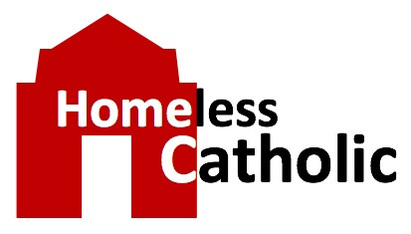Guide, correct, chastise, then Jesus
God remained faithful to his Covenant people and faithful to his promises. Unfortunately, the same cannot be said of the people. Time and again they attempted to live apart from the Covenant. Time and again God would guide and correct and chastise while simultaneously providing evidence of both his presence and his loving care.
This dance would continue for hundreds of years — right up to the year we would eventually designate as the year ‘1’.
Reflection - Enough
By Steve Hall
https://bible.usccb.org/bible/readings/040922.cfm
Ezekiel 37:21-28
John 11:45-56
Apart from the stories from pre-history (Adam and Eve, Noah and the flood for example) we would have to say that the Scriptural account of humanity’s salvation begins with God introducing himself to Abraham. As the Scriptures tell us, Abraham was a man of faith “par excellence.” But, while the Bible continues with its account of Abraham’s line, we increasingly find that faith is bolstered by miracles. It would be a mistake, however, to assume that the miraculous is dependent upon the manipulation of the physical world as in healing illness or infirmities. The miraculous can also be seen in the convergence of events.
The circumstances of Joseph’s life (the Joseph who was the son of Jacob) is one such miraculous event even though we might not think of it as such. Joseph was sold into slavery by his jealous brothers. From his position as a slave in Egypt he quickly rose to great and unexpected political power. He was in that position just at the time his brothers came to Egypt seeking food relief from the famine in the land of Canaan. Similarly with the story of Moses who, as an infant, escaped an Egyptian death sentence, was taken into Pharaoh’s own house, was raised by his own mother, and rose to know both the power of Pharaoh as well as the law, customs and religious practices of the Egyptians.
There is more to this story, but our attention is quickly directed toward the work of God in the physical world. The most dramatic occur in conjunction with the people’s escape from slavery in Egypt. Most of these events you will know or recognize.
It began with ‘ten’ plagues God brought upon the Egyptians; and was soon followed with the people’s departure, an event in which God provided protection through a pillar of cloud by day and a pillar of fire at night. The sea was parted for their passage but Pharaoh’s pursuing army was drowned. In time God provided both water and food during their desert journey. When they reached the land which God had promised, He also provided the necessary assistance for their conquest of the land. All this and more happened within the first few books of the Old Testament.
God remained faithful to his Covenant people and faithful to his promises. Unfortunately, the same cannot be said of the people. Time and again they attempted to live apart from the Covenant. Time and again God would guide and correct and chastise while simultaneously providing evidence of both his presence and his loving care. This dance would continue for hundreds of years — right up to the year we would eventually designate as the year ‘1’. The cry of God that follows from this consistent failure of his Chosen People is explicitly heard in the words of the prophet Micah. “O my people, what have I done to you? In what have I wearied you? Answer me!” (Micah 6:3)
As time goes on both prophets and miracles become fewer and farther between. By the time of John the Baptist people would note that there had been no prophet in Israel for four hundred years.
So what is God to do in the face of such persistent dismissal of his willingness to provide both protection and provision for these people? They have, by in large, chosen their own path. They remember the promise of a Savior but religious practice has degenerated into a rigid formality. The Lord’s will is to send not only a savior, but his Son. Once again the prophet’s call to repentance is heard. Once again manifestations of God’s saving power and presence is evidenced in miracles.
“And Jesus answered them, ‘Go and tell John what you hear and see: the blind receive their sight and the lame walk, lepers are cleansed and the deaf hear, and the dead are raised up, and the poor have good news preached to them.’” (Matthew 11:4-5) Still, there is resistance. Jesus anticipated the ultimate outcome when he concluded the parable of the rich man and the beggar. “He said to him, 'If they do not hear Moses and the prophets, neither will they be convinced if some one should rise from the dead.' " (Luke 16:31)
It is ironic that the account in today’s gospel reading immediately follows the raising of Lazarus from the dead. It is this incident of Lazarus’ resurrection which results in the report being given to the chief priests and Pharisees. The conversation which followed is incomprehensible: ‘this Jesus has raised a man from the dead. We’ll have to get rid of him.’ What miracle could be enough? For humanity it would seem that, no matter what God does, it’s never enough.
“O my people, what have I done to you? In what have I wearied you? Answer me!” (Micah 6:3)

